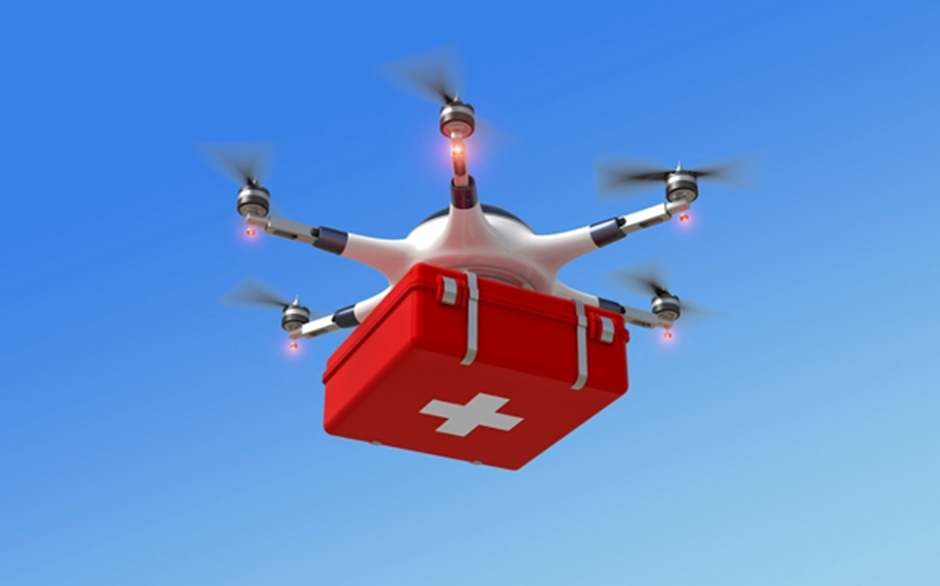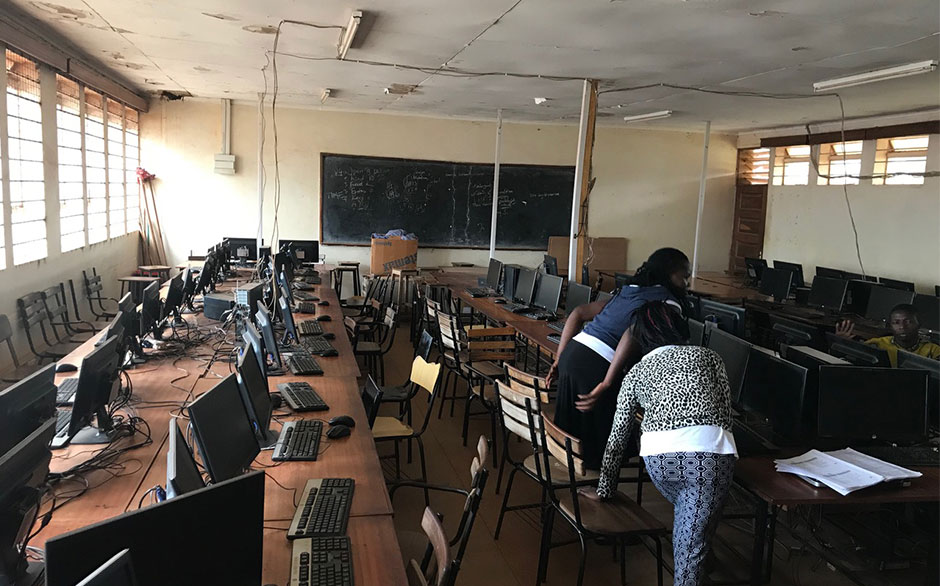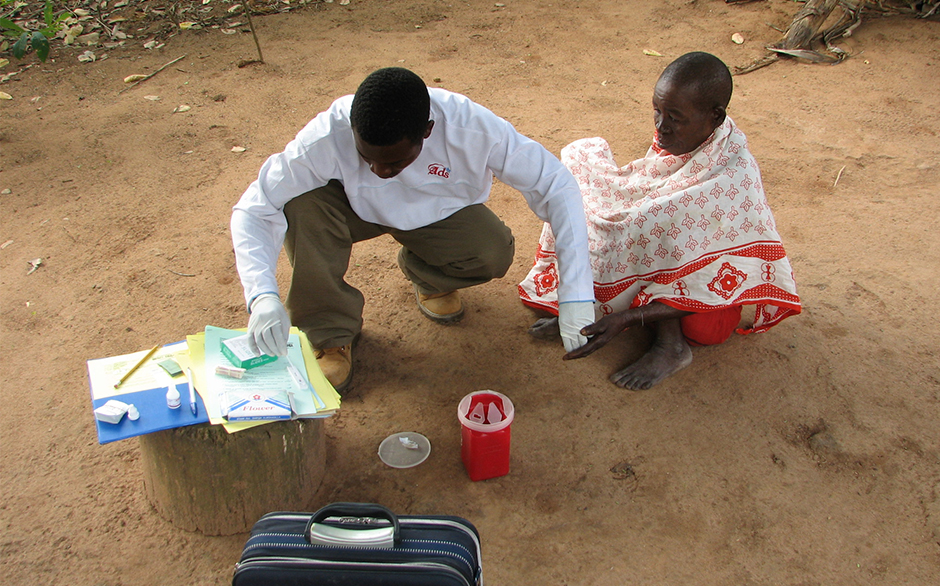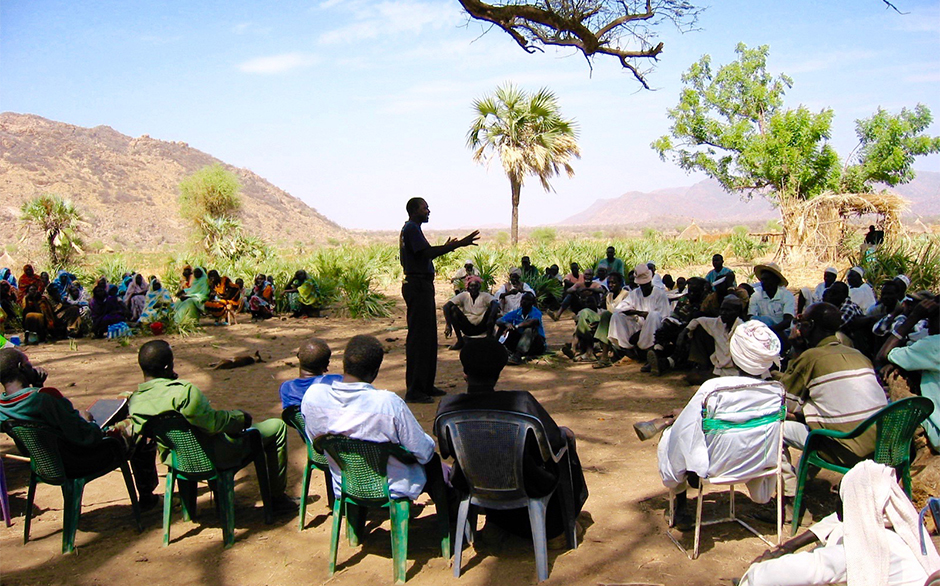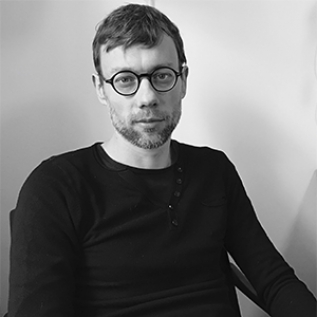
René UmlaufFormer Member
René currently works at the Centre for International Health Protection (ZIG) at the Robert-Koch-Institute (RKI) in Berlin. As a research scientist working on evidence-based public health, René is engaged in several projects that aim to improve global public health through the generation, evaluation, and use of strategic information and scientific evidence. As part of an interdisciplinary team of anthropologists, epidemiologists, public health experts and physicians, he contributes with his expertise in social science methodologies by carrying out research and by providing training to other team members working on scientific capacity building in African and Asian countries.
After receiving his PhD in sociology from the University of Bayreuth in 2015, he worked as a post-doc at the Department of Anthropology at Martin-Luther-University Halle (until 2019), where he became part of the LOST research group. Before joining the RKI in 2022, René worked at the Department of Sociology at Leipzig University where he carried out a project on humanitarian drone infrastructures, which was part of the Collaborative Research Centre (SFB 1199): “Processes of Spatialization under the Global Condition”.
Research
Civil Drones in Africa
“Off the grid”: Infrastructures, processes of spatialization and drones in Africa
While an active member of the LOST network, René investigated the increasing use of so-called civil drones. He examined new spatial formats that emerge through the development, testing and translation of new technical infrastructures in Africa. Although promoted as light off-grid technologies, drones are complex technical systems that combine elements of remote logistics, mass audiovisual data recording and other smart technologies, thereby linking territorial and non-territorial spatial formats. The project explores how the increased use of and reliance on drone infrastructures is accompanied by a simultaneous increase and decrease in the socio-technical significance of specific localities. As a consequence, the emergence of air-space infrastructures in low-resource and humanitarian contexts is analyzed as a paradigm shift in the nexus of nation-building and infra-structuring, within which older notions of nation-state driven infrastructure development and penetration of national territories are partly abandoned.
Publications
- Umlauf, René (2021) "Zur technischen Krisenhaftigkeit der Corona-Krise." in Jahrbuch für Technikphilosophie, Nomos Verlag, 337-341.
- Umlauf, René (2021) "‘Silicon health’ for Africa: Understanding the rise and impact of drone logistics." in Somathosphere. → http://somatosphere.net/2021/silicon-health-for-africa.html/
- Umlauf, René (2020) "'Give work, not aid': Digitale Fabrikarbeit in Norduganda." in Berliner Blätter: Ethnographische und ethnologische Beiträge zum Thema: „Digitale Arbeitskulturen: Rahmungen, Effekte, Herausforderungen", 82. Panama Verlag.
- Umlauf, René (2018) "'Dormant parasites’: Testing beyond the Laboratory in Uganda’s Malaria Control Program." in Experimentation beyond the laboratory: New perspectives on technology in society , edited by Ibo van de Poel and Lotte Alsveld. London, New York: Routledge.
- Umlauf, René (2017) "Mobile Labore: Zur Diagnose und Organisation von Malaria in Uganda." Bielefeld: Transcript Verlag.
- Umlauf, René (2017) "Precarity and Preparedness: Non-Adherence as Institutional Work in Diagnosing and Treating Malaria in Uganda." in Medical Anthropology 36 (5): 449-463.
- Umlauf, René (2017) "An Option with no Choice? The Role of Preventive Technologies for (Dis-)Locating a Malaria Epidemic." in AllegraLaboratory Thematic Week. Medical Technologies and Infrastructure: Mobilities and (Dis-)Connectivities , edited by Hansjörg Dilger and Dominik Matthes. → http://allegralaboratory.net/an-option-with-no-choice-the-role-of-preventive-technologies-in-dis-locating-a-malaria-epidemic-medtech/
- Hopkins, H., J. Cunningham, M. Gatton, I. González, S.Kibira, D. Kyabayinze, M. Mayxay, R. Umlauf (2017) "Prototype positive control wells for malaria rapid diagnostic tests: Prospective evaluation of implementation among health workers in Lao PDR and Uganda." in The American Journal of Tropical Medicine and Hygiene 96 (2): 319-329. → https://www.ncbi.nlm.nih.gov/pmc/articles/PMC5303030/
- Umlauf, René and Sung-Joon Park (2017) "Stock-Outs! Improvisations and Processes of Infrastructuring in Uganda’s HIV/Aids and Malaria Programmes." in Global Public Health 1692 (December): 1–14. → https://doi.org/10.1080/17441692.2017.1414287
- Umlauf, René, Dieter Neubert and Uli Beisel (2017) "Innovationen in afrikanischen Gesundheitssystemen: Die Einführung von diagnostischen Schnelltests in der Malariakontrolle." in Spektrum, Hochschulschrift der Universität Bayreuth.
- Beisel, Uli, René Umlauf, Eleanor Hutchinson, and Clare I. R. Chandler (2016) "The complexities of simple technologies: Re-imagining the role of rapid diagnostic tests in Malaria control efforts." in Malaria Journal 15 (1): 64.
- Umlauf, René and Uli Beisel (2016) "Translating Global Health Technologies: Diagnostic Spaces between Standardization and Adaptation in Uganda’s Malaria Control Program." in Working Papers of the Priority Programme 1448 of the German Research Foundation Nr. 20, Leipzig and Halle. → http://lost-research-group.org/wp-content/uploads/2017/05/SPP1448_WP20_Umlauf_Beisel.pdf
- Park, Sung-Joon, and René Umlauf (2014) "Caring as existential insecurity: Quarantine, care, and human insecurity in the Ebola crisis." in Somatosphere, November 24. → http://somatosphere.net/2014/11/caring-as-existential-insecurity.html
- Höhne, Stefan, and René Umlauf (2014) "Die Akteur-Netzwerk Theorie: Zur Vernetzung und Entgrenzung des Sozialen." in Theorien in Raum- und Stadtforschung: Eine Einführung , edited by Jürgen Oßenbrügge and Anne Vogelpohl, 203-222. Münster: Westfälisches Dampfboot.
- Umlauf, René (2009) "Fabrikarbeit und die Disziplinierung der Arbeiter." Saarbrücken: AV Akademikerverlag.

